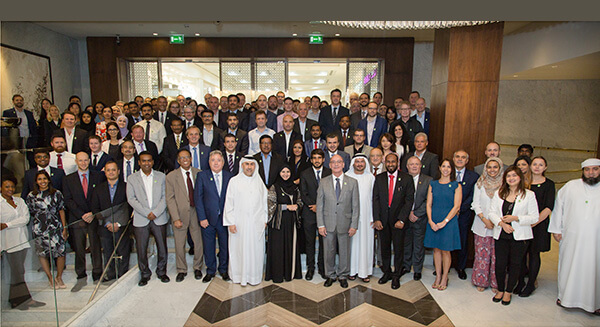
- Joint workshop reiterates the importance of ‘UN Sustainable Energy for All: Building Efficiency Accelerator(BEA) initiative’
- Engages high profile stakeholders to discuss innovative solutions to positively further the green building agenda on a city and National level
- Aims to have a policy in place within 18 months to double the rate of energy efficiency in buildings by 2030
Dubai, UAE; December 26th, 2016: Emirates Green Building Council (EmiratesGBC) and Dubai Supreme Council of Energy (DSCE) invited key stakeholders of Dubai’s building industry to jointly discuss thoughts and views on future potential policies aiming at doubling the rate of energy efficiency in buildings by 2030.
The joint workshop was held to discuss the Building Efficiency Accelerator (BEA), a public-private partnership of cities, businesses and organisations, which aims to improve energy efficiency in buildings. The BEA is one of six accelerators under Sustainable Energy for All (SE4All), an initiative led by the United Nations Secretary-General, and is funded by the Global Environment Facility (GEF).
As one of the larger delivery partners under the BEA, EmiratesGBC and the DSCE’s joint efforts are part of the larger global efforts in turning climate finance into concrete, timely and measurable action in cities in the wake of COP21.
The initiative for policy dialogue hosted by EmiratesGBC and DSCE offered a platform to engage business and government industry stakeholders, identify policy focus areas and share strategic directions that align with the city’s sustainability vision in connection to buildings. The event also explored the creation of policy packages to address barriers, bridge efficiency gaps and avoid lock-in of inefficient building stock.
Saeed Al Abbar, Chairman of EmiratesGBC, said: “When Dubai joined the Building Efficiency Accelerator programme earlier this year, we had begun the process of creating a tangible platform to further strengthen energy efficiency initiatives that are aligned with the Dubai Integrated Energy Strategy and the Dubai Plan 2021. This workshop provided a platform for all delegates to share knowledge, evaluate challenges and learn more about the implementation of the BEA initiative that will undoubtedly contribute to meaningful impact globally through innovative strategies.”
Energy efficiency within buildings is essential given the current scenario where buildings consume nearly one-third of energy demand and account for about one-third of Greenhouse Gas (GHG) emissions globally. The policy coupled with best sustainable practices will enable all stakeholders to be part of the efforts to tackle climate change.
Al Abbar shared that global building energy demand can be reduced by one-third by 2050, if known energy efficiency best practices are implemented on a large scale across regions. During the workshop, the audience of high profile leaders from government and semi-government organisations, private developers, professional contractors and building design consultants agreed on the priority to speed the development and implementation of building efficiency policies and practices.
His Excellency Ahmed Buti Al Muhairbi, Secretary General of the Dubai Supreme Council of Energy, added: “We are looking at developing an integrated energy policy that can facilitate our need for creating green sustainable buildings which translates into reinforcement of our Dubai Integrated Energy Strategy 2030. Our mission is to implement sustainable best practices and solutions that can transform Dubai into a global hub for clean energy and green economy. We value the knowledge and strategic direction of the industry leaders and are pleased to be working with the WorldGBC, EmiratesGBC and the Building Efficiency Accelerator to create a sustainable environment for future generations.”
In Dubai, such energy efficiency initiatives are aligned with the Dubai Integrated Energy Strategy (DIES) and DSM strategy 2030 to reduce 30 percent of the energy demand by 2030.
-Ends-





 Become a Member
Become a Member


